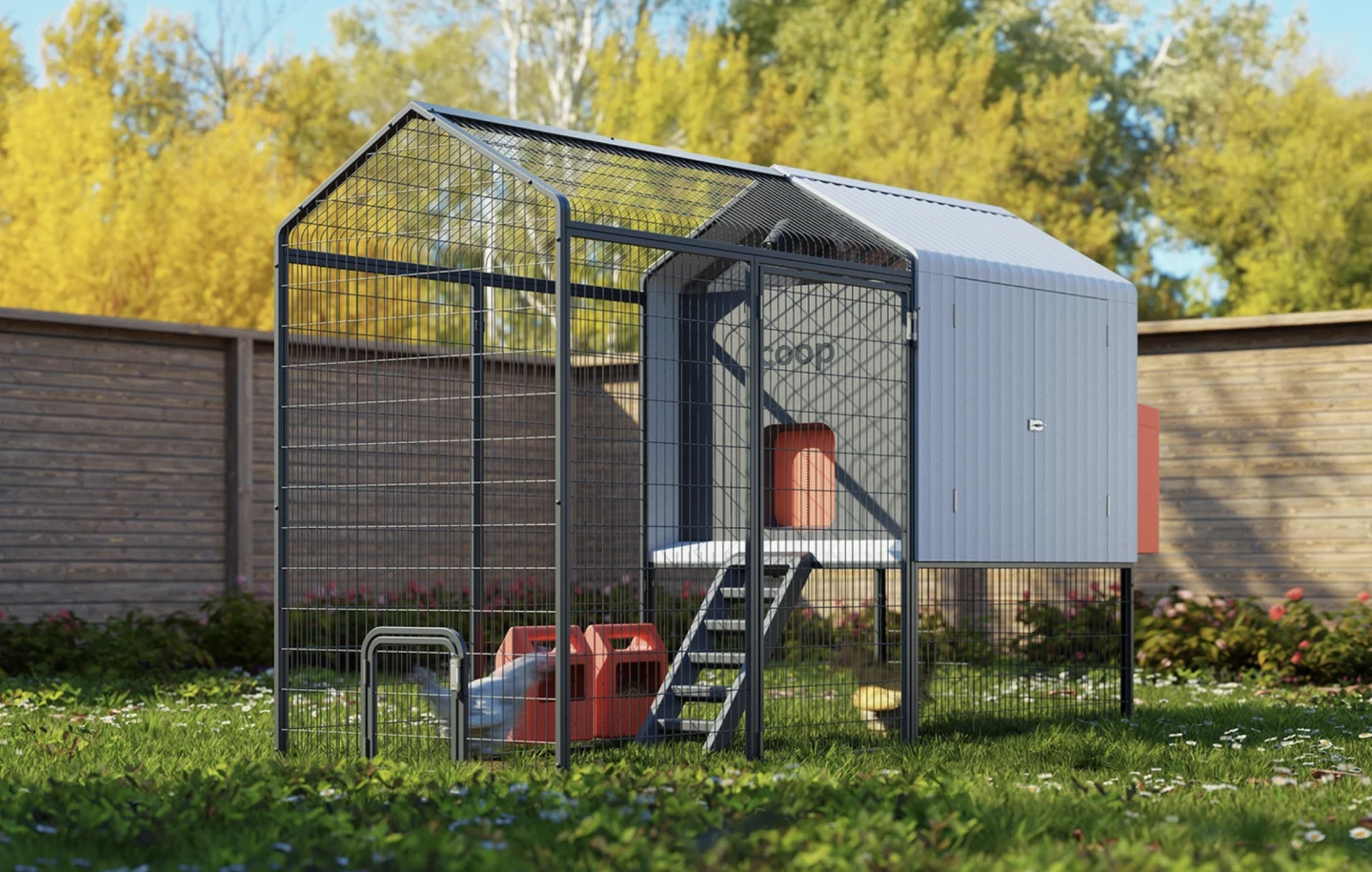Whether motivated by the environment and sustainability, the rising price of eggs, or how the pandemic profoundly changed home life for many families, it’s estimated that more than 17 million US households now have backyard chickens, with the numbers rapidly increasing. Now, the smart Coop and its unique artificial-intelligence-powered system known as Albert Eggstein can tell you exactly what your chatty birds are actually saying to each other and to you.
This builds on Albert Eggstein's existing abilities, which allow for 24-7 monitoring of your backyard birds and their surroundings, through two mounted cameras that offer constant video streaming from the roost and run to your smartphone via the Coop app.
Sound-detection software ‘Cluck talk’ measures the decibels and patterns of the clucks, chirps and other bird chatter to let you know if they’re hungry, happy, broody, in danger or involved in some standard pecking-order drama.
All data and video gathered can be summarized for a weekly rundown sheet, which lets owners recognize patterns such as return predators or any issues within the flock. You'll also have access to CloudCluck storage, which keeps every second of footage and sound on file for 30 days.
The team hopes to roll out further monitoring features in the next six months, which will monitor for health issues that are often easy to miss; birds will hide illnesses, so signs can be very subtle. This tech will be able to, for example, let you know if one of your girls is seeming a little lethargic, or has been drinking less water over a period of time.
The Coop team also plans to develop telehealth functionality within the app, which would connect Coop owners to a network of vets that can then review gathered footage for timely intervention.

The bird-loving brains behind the system are Austin’s AJ Forsythe and Jordan Barnes, who spent more than 10,000 hours designing the coop and all it's smart-tech gadgetry. Their aim was to create a product that would instantly turn backyard bird novices into lifelong clucky converts. As such, 56% of their customers have never raised chickens before.
Those new to the game will quickly see that beyond the supply of eggs – most birds will lay around five a week, depending on factors such as pecking order and weather – chickens make great pets. They’re quirky, surprisingly intelligent and often affectionate animals that provide up to 10 years of companionship. Flock politics, pecking order dramas and other interactions also make them hilariously fun subjects to chicken-watch.
The Smart Coop is not cheep, er, cheap, with a fittingly earlybird price of US$1,995 (standard price of $2,595) – and for US customers only, so far. But it includes the coop, the 82-lb (37-kg) run, pre-mounted smart battery-operated cameras (solar units are in the works), the pre-installed automatic door, detachable food and water dispensers and the custom-fit biodegradable litter trays.
To access the existing Albert Eggstein functions and any future rollouts, you'll need a subscription to the Coop Club, which is an additional $19 per month.
While regulations regarding backyard chooks have relaxed over recent years, check with your local authorities for more details on specifics such as flock number caps and coop placement restrictions.
Source: Coop






